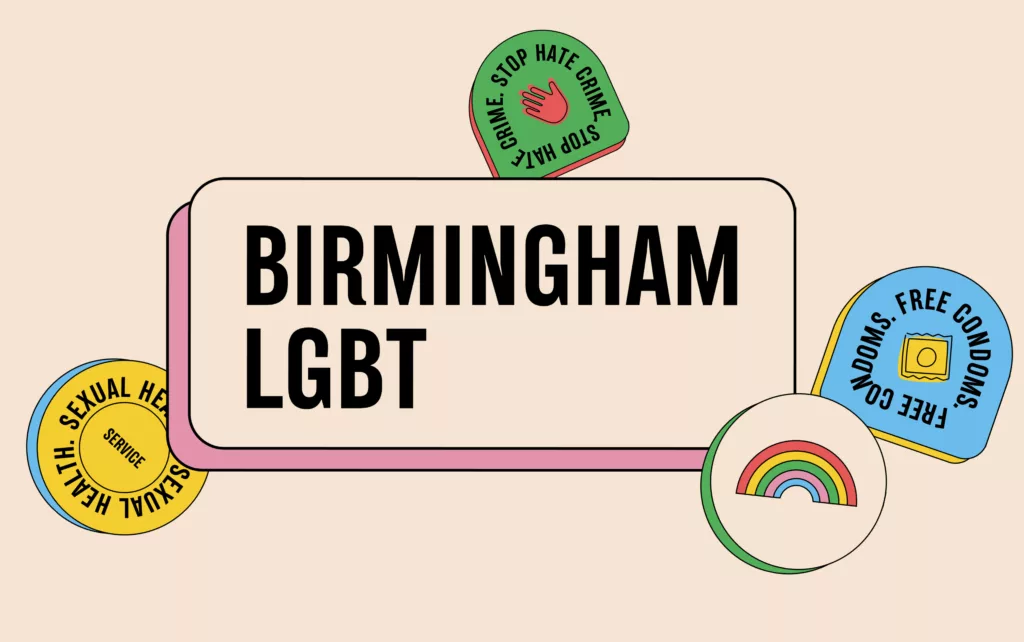Key facts
– There have been a number of confirmed cases of monkeypox in the UK. Although monkeypox can affect anyone, the majority of those cases are among gay and bisexual men.
– Monkeypox is transmitted through close contact, so is likely being passed on during sex rather than sexual transmission.
– Everyone is being asked to be aware of the monkeypox symptoms, but it’s important gay and bisexual men are alert as it’s believed to be transmitting through sexual networks.
– If you have new unexpected or unexplained spots, ulcers or blisters anywhere on your body (including the face and/or genitals) or any of the other symptoms outlined below, then contact your local sexual health service by phone – not in person – or call 111 for advice.
– Symptoms include fever, headache, muscle aches, backache, swollen glands, chills and exhaustion.
– All calls to a GP, a clinic, and to 111 about monkeypox should be treated sensitively and confidentially.
– Close contacts who have symptoms will be advised to isolate for 21 days.
– Health protection teams are getting in touch with close contacts of anyone diagnosed with monkeypox. They will advise you what to do if you do not have symptoms.
Monkeypox transmission
Monkeypox can be passed on from person to person through:
- any close physical contact with monkeypox blisters or scabs (including during sexual contact, kissing, cuddling or holding hands)
- touching clothing, bedding or towels used by someone with monkeypox
- the coughs or sneezes of a person with monkeypox when they’re close to you
You’re extremely unlikely to have monkeypox if:
- you have not been in close contact (such as touching their skin or sharing towels, clothes or bedding) with someone who has monkeypox or has monkeypox symptoms
- you have not recently travelled to west or central Africa
The virus enters the body through broken skin (even if not visible), the respiratory tract, or the mucous membranes (eyes, nose, or mouth). The incubation period is the duration/time between contact with the infected person and the time that the first symptoms appear. The incubation period for monkeypox is between 5 and 21 days.
Monkeypox infection is usually a self-limiting illness and most people recover within several weeks. However, severe illness can occur in some individuals.
Symptoms
The first symptoms of monkeypox include:
- a high temperature
- a headache
- muscle aches
- backache
- swollen glands
- shivering (chills)
- exhaustion
A rash usually appears 1 to 5 days after the first symptoms. The rash often begins on the face, then spreads to other parts of the body. This can include the genitals and anus.
The rash is sometimes confused with chickenpox. It starts as raised spots, which turn into small blisters filled with fluid. These blisters eventually form scabs which later fall off.
The symptoms usually clear up in a few weeks. An individual is contagious until all the scabs have fallen off and there is intact skin underneath.
Geographic spread
The proportion of cases resident in London was more than 75% from the start of the incident up to 20 June 2022. This proportion declined to just over 60% in early July and has stayed at around 66% of cases since then. On 18 July 2022 the total number of monkeypox cases confirmed in the UK was 2,137. Most of these were diagnosed in England (2,050) and the majority of cases were in gay and bisexual men.
Monkeypox and HIV
There is limited evidence on monkeypox in people living with HIV, and most is based on research in countries where access to HIV treatment is low, and overall health outcomes are worse than in the UK. Currently people living with HIV should follow the same advice as the general population. Should evidence emerge that people with weakened immune systems are at greater risk of monkeypox, or ill-health from catching the virus, then updated information and advice will be made available.
Monkeypox and PrEP
Monkeypox does not affect effectiveness of PrEP (pre-exposure prophylaxis); therefore, people who use PrEP should continue to take it.
Vaccination
A safe smallpox vaccine, called Imvanex is available and currently offered to close contacts of people diagnosed with monkeypox and healthcare professionals who are seeing potential monkeypox cases. The vaccine reduces the likelihood of symptomatic infection and severe illness.
UKHSA has announced plans to make the vaccine more widely available – this will include gay and bisexual men who are more likely to be exposed to monkeypox. People are currently advised not to come forward for the vaccine until contacted.
UKHSA guidance for gay/bi/MSM:
- While anyone can catch monkeypox, the majority of monkeypox cases in the UK continue to be in gay, bisexual and other men who have sex with men (MSM), with the infection being passed on mainly through close contact between people in interconnected sexual networks.
- Before you go to a party or event, check yourself for monkeypox symptoms, including rashes and blisters. If you have monkeypox symptoms, take a break from attending events or sex until you’ve called 111 or a sexual health service and been assessed by a clinician. It can take up to 3 weeks for symptoms to appear after being in contact with someone with monkeypox, so stay alert for symptoms after you have skin to skin or sexual contact with someone new.

